Breaking Down Mental Health Barriers Within Hispanic Communitiesby Amanda Lee Calderon Family is bonded by support, love, and understanding for one another. It is essential to the human experience that it exists. It is one of the most precious and important commodities we possess. In Hispanic/Latinx communities and culture, the ‘familia’ is the centerground for bonding, celebrating, and creating unbreakable ties. It's a beautiful notion, but there is an issue that must be dealt with at the same time, and that is the stigma surrounding mental health within the Hispanic community. In almost every Hispanic household, there is an increased reliance on family as the primary source of support. Often it is because of this reliance on others that people do not open up about their mental health issues and problems. Its stigma leads to the assumption that it is a sign of being ‘loco’ (crazy), possessed by demons, or just a lack of faith. Individuals who are restricted by these beliefs may not be able to open up and express themselves, particularly when they may need assistance or help. Hispanic people should break down these obstacles and create better and more effective ways of helping their family members or anyone in need. Also, a significant number of Latinos work low or minimum-wage jobs that do not cover health insurance, therefore, pushing their mental health priorities to the bottom of the list. In turn, they may seek out other avenues for help such as seeking guidance from curanderos (healers) or using homemade remedies. Because of fear, discussing conditions with their primary care doctors prevents them from getting the proper help for their mental well-being. All these barriers prevent many Hispanics from truly seeking the guidance and mental healthcare they need. These are just some of the many difficulties that they face today. How can this community break down all these stigmas associated with mental health? How can they live a more enriching life? Can they do this all while maintaining their mental health and welfare? The answer lies in being able to feel comfortable enough to discuss this necessary topic. Mental health is a very daunting and sensitive subject to address. Despite this, there are a couple of ways to try and break the stigma surrounding this issue in Hispanic/Latino communities. One way to combat resistance is by encouraging family involvement. Rather than being afraid to speak up about mental struggles, families should find ways to be open and honest with each other. As a result, families can grow fonder and closer; forming bonding ties of unity and assistance. Helping one another should be the foreground of every family circle. Another approach is to provide compassion while considering one's different cultural and religious beliefs or values. Despite the contrast between culture and religion, everyone has morals and values guiding their decision-making. How a person decides to give compassion to someone dealing with a mental health concern, should be evaluated. Handling such empathy and understanding starts with breaking down the attachment associated with one's religious or cultural principles. Creating a safe space for treatment is another example of proceeding toward a haven for those struggling. There is nothing more important than experiencing the comfort of being able to safely voice one's mental concerns and actions. Reaching for further help and having a support system benefits their well-being. Without any support, one’s mental health condition may deteriorate and fail and eventually lead to a downfall. Another action is promoting awareness and sharing resources. This one is significant. Sharing accurate and safe resources for someone can help save lives, especially if they are in a dire situation mentally. It is equally important to make sure that these resources are easily accessible as well. People need to be able to find them quickly and easily. Mental health professionals should also be available to help those in need. They can provide personalized support and guidance, as well as provide resources that are tailored to the individual's needs. Therefore, it is crucial to promote mental health awareness, and make capable resources easily accessible. So, in conclusion, we need to be able to reach out to individuals dealing with mental conditions, especially within Hispanic/Latinx communities. Latino adversity and strong backgrounds should not hinder a call for help. We need to find compassion and understand the real meaning of mental illness. We need to educate and encourage the masses to end the stigma and wrong beliefs about mental health. Additionally, it is an important matter to be discussed openly. Hopefully, we can achieve it one step at a time, collectively, carefully, and mindfully. Da paz y amor a los demas y recibe lo mismo a cambio . Amanda Lee Calderon is a mental health advocate and the podcast host of The Bipolar Cat, A Mental Health and Lifestyle Podcast. She is a photographer, writer, filmmaker, and actress from McAllen, Texas. Her photography and poetry have been featured in Encore Magazine, The Paper, Speechless in the RGV Magazine, Mirrors, An Anthology, House of Horrors, and Otherwise Engaged Volume 3. She has written over 10+ short film scripts and is in the process of writing one at the moment. One of her biggest inspirations is nature, and enjoying the outdoors.
GET PUBLISHED on the T.R.i.P. Wire! Are you a writer, thinker, philosopher, person with thoughts and the ability to create a Word document containing a post in the range of between 300 and 600 words in length? If you submit your post, we can publish it here on TRiP Wire, the official blog of The Raving Press. Click here to see our GUEST BLOGGER Submission Guidelines. (The views and opinions expressed by guest bloggers are not necessarily those of The Raving Press, TRiP Wire, its editors, or affiliate entities.) Pornhubocalypse: Texasby Roger S. Martin So, you wake up in Texas, ready to start your day with the usual scroll through your favorite sites, but suddenly, Pornhub is nowhere to be found. Yep, you heard it right—Texas has shut down the digital pleasure palace. Now, you're sitting there with your coffee in one hand and a very lukewarm webpage in the other, wondering what the heck just happened. That's all you'll see on the site: a letter in black and white where sexy adventurers and acrobats would otherwise be. God bless their souls. So, let's break this down. Our elected officials decided we need some kind of ID check before we can enter the virtual funhouse. The idea is to keep the kids out, but seriously, who wants to flash their ID every time they want a little online entertainment? It's like pressing the rewind button and ending up in the 80s having to show your face entering the "adult" section at the local video rental store. Pornhub isn’t having it. They say this ID check plan is just a big mess. It’s not only stepping on our rights, but it’s also totally ineffective. Who’s gonna bother with an ID check every time? It's like making people show their ID for a bag of chips. Here’s the deal: by shutting down Pornhub, Texas might be causing more problems than they’re solving. When you take away something people want, they’ll just find another way to get their satisfaction. If you ask me, that's just asking for trouble. Denying access to Pornhub might just ramp up tensions among the masses, too. People need a way to blow off steam, and without it, things can get pretty heated and not in a sexy way. Think about it—when folks have an outlet for their frustrations, like, say, a little private time with Pornhub all-stars, it can actually help keep the peace. It’s like a pressure valve for society, letting people release their stress before it builds up and spills over into social or political unrest. Pornhub suggests a better solution: device-based age verification. This way, only the adults get in, and it’s way easier than digging out your ID every time you want to watch something spicy. So, there you have it. The Pornhubocalypse is here in Texas, but all hope isn’t lost. Let’s hope our lawmakers get it together and realize that shutting down the site is just gonna stir up more trouble. Give the people their outlet, and maybe we can all "Pornhub and chill" a bit. In the meantime, we’ll have to find other ways to keep...ahem, entertained. If you want to go read the full Pornhub letter, Click Here. Oh, and -- Don't Mess With (our porn), Texas! GET PUBLISHED on the T.R.i.P. Wire!
Are you a writer, thinker, philosopher, person with thoughts and the ability to create a Word document containing a post in the range of between 300 and 600 words in length? If you submit your post, we can publish it here on TRiP Wire, the official blog of The Raving Press. Click here to see our GUEST BLOGGER Submission Guidelines. (The views and opinions expressed by guest bloggers are not necessarily those of The Raving Press, TRiP Wire, its editors, or affiliate entities.) About the Author Hello! My name is Richard Sanchez, author for this collection of poems. I was born and raised in the Rio Grande Valley of Texas. I attended Edinburg Schools and Pan American University. I graduated with a Bachelor of Science degree in Biology, an Associate degree in Nursing, and a minor degree in English. I chose Nursing as a career and dabbled in Environmental Science and Marine Biology. Other than being a poet, I am also a creative writer, published author, and photographer. As mentioned in my book, I have been writing since my early high school years. However, it was not until about 2010 that I started participating in public presentations, poetry readings, publishing, and taking part in book signings, and book fairs. I also participated in several anthologies as a short story writer and poet. As for experience, I have written articles for the local newspaper, and had twenty-six stories published in the elite, Texas Trophy Hunter’s Magazine (as a guest columnist). Recent books to my credit include The Jelly Jar, The Story Teller, and a co-authored work, The Lone Sendero. I have also been instrumental in editing and ghostwriting for several of my close friends. Along the way, I realized that poetry can be used as an effective way of expression. One Day Long ago we welcomed them on the day the others came Not knowing their full purpose not knowing of their fame One day their sense of fairness for lack of better words Their countenance turned sour Their presence thinned our herds That day, the others came and fair was not their way They wanted and demanded more and more each day On the day the others came and things began to clear They took the things they wanted The things that we held dear Our people spoke in whispers the day the others came They turned our rivers crimson For this they had no shame This is the blood of your people Was all they had to say And to stop the theft, the killing, our people moved away A Reflection My soul is one, my body is one. I soaked my soul in drink And like my stone, cold heart my dark, dark soul did sink My soul is one, my body is one. They do not always blend broken mirror, broken glass twins clash in opposition My soul is one, my body is one Like the sign of the yin and yang Red wolves waiting in ambush, Watching . . . circling, glaring barefoot on crackled glass One is my soul, one is my body In the silence of my mind, the soft voice says “this too shall pass.” In time, my soul should feel. And in the place of my poor, tired heart, a stained-glass window heals. Richard Sanchez All rights reserved 1/24/2024 GET PUBLISHED!
Are you a writer, thinker, philosopher, person with thoughts and the ability to create a Word document containing a post in the range of between 300 and 600 words in length? If you submit your post, we can publish it here on TRiP Wire, the official blog of The Raving Press. Click here to see our GUEST BLOGGER Submission Guidelines. (The views and opinions expressed by guest bloggers are not necessarily those of The Raving Press, TRiP Wire, its editors, or affiliate entities.)  Samuel Sonora Samuel Sonora Let's talk about something that's been on my mind for a while: reparations for Chicanos. We're not just talking about a few bucks here and there. Nah, we're talking about addressing centuries of injustice and making things right for our people. First off, let's rewind to history class. Remember learning about how Texas, New Mexico, Arizona, California, and parts of other states weren't just empty land waiting to be claimed? Yeah, they were our ancestral lands, inhabited by Indigenous peoples and settled by Mexicans. But then along came the U.S., with their wars and treaties, and suddenly we got stripped of our land faster than you can say "manifest destiny" The Treaty of Guadalupe Hidalgo? Yeah, that was supposed to protect our rights and property, but it ended up being a raw deal for us. Promises broken, land stolen—sound familiar? And let's not forget about how we've been treated as a workforce. From agriculture to mining to building railroads, we've been the backbone of this country's economy for centuries. But instead of getting fair wages and decent working conditions, we've been exploited, plain and simple. Low pay, dangerous jobs, no legal protections—yeah, we've seen it all. But here's the kicker: every election cycle, politicians start fearmongering about immigration, and who do they scapegoat? You guessed it—Chicanos (or Mexicans, or Central Americans, or South Americans, or any brown person--they really don't care about making distinctions). Suddenly, we're criminals, we're stealing jobs, we're a threat to national security. It's like clockwork, and it's getting old real fast. So, why reparations? Because it's time to set things right. It's not just about the money (although that would definitely help). It's about acknowledging the wrongs that have been done to us, and making amends. It's about recognizing our contributions to this country and giving us the respect we deserve. Reparations are about more than just writing a check. They're about justice, plain and simple. It's about holding the powers that be accountable for the harm they've caused and taking steps to make things right. And yeah, it's long overdue. So, let's stop beating around the bush and start talking about real solutions. Reparations for Chicanos—it's time to make it happen. About the Author
Samuel Sonora is a Chicano writer, father, and son of Mexican immigrants. He has recently retired and is focused on spending time with his family and grandkids, as well as writing poetry. He hopes to publish a book at some point in the near future. GET PUBLISHED! Are you a writer, thinker, philosopher, person with thoughts and the ability to create a Word document containing a post in the range of between 300 and 600 words in length? If you submit your post, we can publish it here on TRiP Wire, the official blog of The Raving Press. Click here to see our GUEST BLOGGER Submission Guidelines. (The views and opinions expressed by guest bloggers are not necessarily those of The Raving Press, TRiP Wire, its editors, or affiliate entities.)  Alex Christoph Alex Christoph It's election season, and you know what that means...all out reversal of our social standards in service of political pursuits. Critiques of President Biden's age have sparked important discussions around ageism and its potential to become a slippery slope toward problematic societal issues such gender equality, and racial biases. While it's essential to examine the dynamics of ageism in political discourse, it's equally crucial to dissect the broader implications of such criticisms and their potential alignment with regressive attitudes towards gender, race, and minority groups. First off, let's address the criticism of President Biden's age. It's undeniable that ageism exists in various facets of society, including politics. Critics often cite Biden's advanced age as a concern regarding his ability to effectively lead the nation, make sound decisions, and keep up with the demands of the presidency. However, it's essential to distinguish between legitimate concerns about a leader's capacity and unjustified biases based solely on age. Critiquing Biden's age should not automatically equate to ageism. It's reasonable to scrutinize any leader's competency, regardless of their age. However, the manner in which these critiques are framed and the underlying assumptions they carry can perpetuate ageist stereotypes. Rather than solely focusing on age, discussions should center on a leader's policies, actions, and vision for the future. Now, let's delve into the broader implications of ageism and its intersectionality with other forms of discrimination, such as sexism and racism. Criticisms of Biden's age can intersect with antiquated beliefs about gender and race, leading to harmful stereotypes and biases. For instance, reverting to old-fashioned thinking about women being the weaker sex can manifest in subtle ways when critiquing Vice President Kamala Harris, who holds a prominent position in the Biden administration. Dismissing her leadership capabilities or subjecting her to harsher scrutiny based on gender stereotypes undermines the progress towards gender equality. Similarly, questioning the intelligence or competency of minorities within the administration echoes historical prejudices that have long perpetuated systemic inequalities. It's imperative to recognize and challenge these biases to foster a more inclusive and equitable society. It's easy to see where these criticisms usually stem from. There are two prominent political forces in our country. One tends to side with inclusion, sensitivity towards others' "differentness," and equality. They may not always achieve these goals, but at least these are targets that they aim for. While on the other side of the political spectrum, there seems to be a push toward returning society toward the ways of the past, when people weren't so damn sensitive about being made to feel shame for simply being themselves. The strange and unexpected point of convergence can be seen in what is happening today with seemingly both sides piling on Biden regarding his age. Is he old? Sure. Does he makes plenty of old, grandpa gaffes? Of course--'cuz he's old! But has he shown seriously concerning behavior that implicates a complete dysfunctionality? Nope. And yet even progressive outlets are trashing the guy because of his age. It seems clear that a reason that the two opposing political forces are converging on this one point of criticism of the current president is because it serves as a convenient tool to attempt to dislodge him as the candidate to take on Trump. But in joining in this political tactic, progressives might be helping to undo what has taken generations to achieve: a culture that seems to be inching closer to the acceptance of people on the content of their character and not the characteristics of their skin. Be it the skin of a person of color, that of a woman, or that of an senior citizen. Critiquing President Biden's age should prompt us to reflect on broader issues of ageism, sexism, and racism within our society. While it's essential to hold leaders accountable, criticisms must be rooted in substantive concerns rather than perpetuating stereotypes or biases. By challenging ageist attitudes and promoting inclusivity, we can move towards a more progressive and equitable future for all. About the Author
Alex Christoph is an Ohio writer and journalist in training. He has been published in his school newspaper and online on various web zines under various pen names. GET PUBLISHED! Are you a writer, thinker, philosopher, person with thoughts and the ability to create a Word document containing a post in the range of between 300 and 600 words in length? If you submit your post, we can publish it here on TRiP Wire, the official blog of The Raving Press. Click here to see our GUEST BLOGGER Submission Guidelines. (The views and opinions expressed by guest bloggers are not necessarily those of The Raving Press, TRiP Wire, its editors, or affiliate entities.) The Border Arts Network channel called B.A.N. TV has just premiered the latest episode of its bilingual podcast "Antes de Que Nos Olviden" (Before They Forget Us). In this new episode, the hosts talk about the duality in people's inner selves. The side of us that conforms to social strictures and the side that wants to cut ties to it all and take the plunge. Antes de Que Nos Olviden: Episode 7 This is a bilingual podcast in Spanish and English. For more about this podcast, please visit B.A.N. TV.
 T.R.i.P. Wire Guest Author Alex Christoph T.R.i.P. Wire Guest Author Alex Christoph A Satirical Guide to Surviving the Fascist Anti-Democratic Apocalypse by Alex Christoph Hey there, survivors of the impending democracy demolition derby! As we buckle up for a wild ride into the dystopian unknown, here are some tips to help you not only survive but maybe thrive in this fascistic world. 1. Fashion Faux Pas or Freedom Chic? Ditch those democracy-loving slogans on your clothes. Opt for a subtler look that says, "I’m just here for the fashion, not the freedom." Camouflage patterns aren’t just for the military – they’re also for those looking to blend into the background. 2. Doublethink and Chill: Mastering the Art of Contradiction Practice your Orwellian doublespeak – say one thing, mean another. It's not lying; it's strategic communication in a world where truth is as rare as a unicorn. Remember, ignorance is strength, so stay strong and selective with your information. 3. Friend or Foe? Trust No One (Except Yourself) In the age of surveillance and suspicion, loyalty is a scarce commodity. Develop a knack for reading between the lines and questioning everyone's motives. Your best friend could be your worst enemy or vice versa, but hey, who said life in a fascist regime can’t be a thrilling guessing game? 4. DIY Thoughtcrime Detection Kit Keep an eye on your own thoughts! Construct a homemade thoughtcrime detection kit using everyday items like tin foil hats and a Magic 8-Ball for decision-making. Because nothing says survival like a dash of paranoia and a sprinkle of premonition. 5. Bootlicking Basics: Picking the Right Side When in doubt, cozy up to authority figures. Whether it's Big Brother, Supreme Leader, or Emperor Palpatine, find the top dog and wag your tail enthusiastically. Remember, survival of the sycophant is the new natural selection. 6. Creative Subversion: Rebel with a Smile Subvert the system with satire, memes, and subtle acts of rebellion. A well-placed joke can be a Trojan horse for dissent, and a clever meme might just be your ticket to the resistance party. Just make sure your laughter is louder than the footsteps of the secret police. Remember, surviving the fascistic, anti-democratic apocalypse is not just about avoiding danger but embracing the absurdity of it all. So, put on your best poker face, sharpen your wit, and let’s dance our way through the twilight of democracy with a hint of dark humor and a dash of defiance! About the Author* Alex Christoph is an Ohio writer and journalist in training. He has been published in his school newspaper and online on various web zines under various pen names. Get Published! Are you a writer, thinker, philosopher, person with thoughts and the ability to create a Word document containing a post in the range of between 300 and 600 words in length? If you submit your post, we can publish it here on TRiP Wire, the official blog of The Raving Press. Click here to see our GUEST BLOGGER Submission Guidelines. *The views and opinions expressed by guest bloggers are not necessarily those of The Raving Press, TRiP Wire, its editors, or affiliate entities. "Open Horizons: Reconsidering the US-Mexico Border" by Ignacio “Nacho” Martinez The US-Mexico border used to be open once a long time ago. Could we benefit from reopening it again? This issue intertwines economic, social, and security considerations. Examining the potential benefits of a more open border reveals opportunities for economic growth, strengthened relations, and enhanced security measures. Economic Ties and Opportunities: Mexico has long been a valuable partner for the United States, contributing to a robust economic exchange. The availability of a cost-effective labor force has driven growth in various sectors, from manufacturing to agriculture. Opening up the border could further amplify these economic ties, providing a boon to the retail sector, tourism, and retirement destinations. Tourism Potential along the Rio Grande: Imagine the Rio Grande river transforming into a major attraction, drawing American tourists seeking affordable accommodations, entertainment, and culinary experiences. By embracing a more open border policy, the region could become a thriving destination for boating, dining, and vacationing, injecting vitality into local economies on both sides of the divide. Local Economic Development: Beyond the natural beauty of the Rio Grande, the cities and towns along the border stretch could experience a significant influx of economic activity and development. This potential surge in commerce and infrastructure could lead to job creation and improved living standards, addressing some of the challenges faced by border communities. Mitigating Undocumented Immigration Strains: Probably the most compelling argument for an open border is the potential to alleviate the strains of undocumented immigration. By creating legal channels for migration, the United States could better manage and regulate the flow of people, fostering a more transparent and orderly immigration process. Enhancing National Security through Friendship: Maintaining a friendly relationship with immediate neighbors, such as Mexico, can serve as a strong buffer against potential terrorist threats and other bad actors, such as drug cartels and human traffickers. Cooperation and collaboration between nations can enhance intelligence-sharing and security measures, ultimately safeguarding the interests of both countries. While the idea of reopening the US-Mexico border brings forth a myriad of possibilities, it is crucial to carefully navigate the complexities involved. Striking a balance between economic benefits, enhanced tourism, local development, and national security is essential for crafting a comprehensive and sustainable border policy that serves the interests of both nations. Immigration is a difficult subject to cover but a discussion and not political speech is much more important to consider the long-term impacts and work towards solutions that foster cooperation and prosperity on both sides of the border. FREE DOWNLOAD!Download “Lost: Children of the River”
for free! Offer ends 12/10/2023 at 11:59 pm. “This compelling work delves into the lives of those affected by the crisis, shedding light on the challenges faced by migrant children and their families as they navigate perilous journeys in search of safety and a better life. “ In a bold move towards raising awareness about the on-going border migrant humanitarian crisis, The Raving Press is offering a free download of this thought-provoking book, “Lost: Children of the River.” This compelling work delves into the lives of those affected by the crisis, shedding light on the challenges faced by migrant children and their families as they navigate perilous journeys in search of safety and a better life. Writers and artists from all across America and the world skillfully captures the raw emotions and untold stories of individuals caught in the crossfire of geopolitical struggles. Through poignant narratives and vivid imagery, “Lost: Children of the River” humanizes the often dehumanized, providing readers with a deeper understanding of the complexities surrounding migration. By making this book available for free, The Raving Press aims to amplify the voices of those directly impacted by the crisis and spark conversations about the urgent need for empathy and global cooperation. The powerful storytelling serves as a call to action, encouraging readers to reflect on their role in fostering a more compassionate world. Download your free copy of “Lost: Children of the River” today, and join the journey towards a greater understanding of the border migrant humanitarian crisis. Together, let’s bridge the gap between hearts and borders. CLICK HERE TO GET YOUR FREE COPY. by Greg Perez Torres In a world marred by conflicts and strife, the voices of those advocating for peace and protesting against war serve as beacons of hope. However, a disturbing trend has emerged where some individuals equate these peace advocates, the war protesters, with the very entities they oppose – the war mongers. Such a comparison not only lacks logical coherence but also carries a moral weight that undermines the essence of peaceful dissent. At its core, war protesting is an expression of dissent against violence, bloodshed, and the devastating consequences that wars unleash upon humanity. It represents a collective outcry for diplomacy, dialogue, and a pursuit of alternatives to resolve disputes without resorting to armed conflicts. In contrast, war mongers actively advocate for military interventions, often fueled by aggressive nationalism, geopolitical interests, or an appetite for power. Equating those who raise their voices against war to war mongers ignores the stark differences in their motives and objectives. War protesters strive for a world where conflicts are resolved through dialogue, diplomacy, and understanding. On the other hand, war mongers pursue aggressive and militaristic policies that often result in widespread suffering and loss. This false equivalence not only distorts the narrative but also risks stifling the crucial discourse needed to foster a more peaceful world. It undermines the legitimacy of peaceful dissent, discouraging individuals from standing up against injustice and violence. In doing so, it inadvertently strengthens the positions of those who promote militarism and aggression. Moreover, such a moral misstep perpetuates a narrative that blurs the lines between right and wrong, creating confusion in the collective conscience of society. By painting war protesters with the same brush as war mongers, we risk diluting the moral imperative of striving for a more just, equitable, and peaceful world. In a democracy that values freedom of expression, equating peaceful demonstrators to war advocates not only stifles dissent but also threatens the very principles that uphold a just society. It is imperative to recognize and respect the moral high ground that war protesters occupy, acknowledging their commitment to a more compassionate, humane, and conflict-free world. In summary, the act of equating war protesters to war mongers is not only illogical but also morally reprehensible. It undermines the essence of peaceful dissent, weakens the fight against militarism, and risks perpetuating a narrative that blurs the lines between right and wrong. In a world desperate for peace, it is crucial to champion the voices that advocate for non-violence, understanding, and diplomacy. Write for the T.R.i.P. Wire!Introduction:
Publishing a book is a thrilling journey that brings an author's words to life, connecting them with readers worldwide. In this blog post, we'll explore the multifaceted world of book publishing, covering key aspects from writing your manuscript to navigating the publishing industry. 1. **Crafting Your Manuscript:** Before delving into the publishing process, ensure your manuscript is polished and refined. Take the time to edit, revise, and seek feedback from beta readers. A well-crafted manuscript forms the foundation for a successful book. 2. **Choosing the Right Publishing Path:** Authors have two primary routes: traditional publishing and self-publishing. Traditional publishing involves securing a literary agent who will pitch your manuscript to publishing houses. Self-publishing empowers authors to control the entire process, from editing to cover design, using platforms like Amazon Kindle Direct Publishing (KDP). 3. **Literary Agents and Query Letters:** If opting for traditional publishing, finding a literary agent is crucial. Craft a compelling query letter that succinctly conveys the essence of your book, enticing agents to request your full manuscript. Research agents who specialize in your genre for a better chance of success. 4. **Navigating Traditional Publishing:** If a literary agent secures a book deal with a publishing house, the publisher will handle various aspects like editing, cover design, and distribution. Authors receive advances against future royalties, and the publisher assumes the financial risk. 5. **Self-Publishing Platforms:** Self-publishing offers autonomy but requires careful planning. Platforms like KDP, IngramSpark, and others provide tools for authors to publish ebooks and print books. Pay attention to formatting, cover design, and marketing strategies to maximize your book's visibility. 6. **Building an Author Platform:** Regardless of the publishing path, establishing an author platform is crucial. Utilize social media, author websites, and newsletters to connect with your audience. A robust author platform enhances your book's marketability and paves the way for future projects. 7. **Marketing and Promotion:** Successful book publishing involves effective marketing. Put together a marketing strategy to promote your book online and in person. Leverage social media, book reviews, author events, and collaborations to increase visibility and attract readers. 8. **The Importance of Professional Editing:** Whether traditional or self-publishing, investing in professional editing is non-negotiable. Editors refine your prose, correct errors, and ensure your book meets industry standards. A well-edited book significantly enhances its reception. 9. **Understanding Royalties and Contracts:** For traditionally published authors, understanding royalty structures and contract terms is vital. Seek legal advice if necessary to ensure you are making informed decisions about your intellectual property. Conclusion: Embarking on the journey of publishing a book requires dedication, persistence, and strategic planning. Whether choosing traditional publishing or embracing the world of self-publishing, authors must navigate each step with care. Remember, the publishing landscape is ever-evolving, so staying informed about industry trends is key to a successful and fulfilling publishing experience. The long wait is over!
We're giving away a FREE copy of the Border Arts: Beyond the Barriers anthology. It took us weeks waiting on the people at Kindle to fix some issues with the upload we had submitted. It was something on their end. Luckily, the book has been published and now it is FREE for a LIMITED TIME. BEFORE YOU DOWNLOAD... PLEASE HELP US WITH ONE LITTLE THING We are asking for your help to spread the word about the book and our border arts marketing platform called the Border Arts Network (B.A.N.). FOLLOW THESE STEPS: 1) Click the link at the bottom, which will take you to the B.A.N. website; 2) Once there, click on one of the share icons to any platform you use, or email service, to share the page with your friends and contacts; 3) Then click the book image, which will take you to the download page to get your free copy. That's it! Your help is greatly appreciated. Here's the LINK Kathleen Bunyan Carlson writes a variety of poetry from serious to humorous, and in a variety of forms from sonnets to doggerel. Her content ranges from earthworms making shameless love on a summer day to the pain of losing a child. Kathleen started writing poetry at the age of seven and made writing her profession. She earned a BA in English, MS in Journalism and an MA in Creative Writing. She worked as a technical writer, grant writer and project coordinator for city and county governments, and for a technical college in Wisconsin. She was born on the island of Aruba, Netherlands Antilles. She and her family immigrated to Wisconsin in 1953. She became a U.S. citizen in 1974. She and her husband Vernon live in Palmview, Texas. The Border Arts: Beyond the Barriers is LIVE and available for purchase. (CLICK HERE for a short sample of what's inside.)
For the next several days we will be posting each of our contributors' bios and pictures here in the order that they appear in the anthology "Contributor Bios" page. The aim of this publication was to showcase some of the artistic talent that often gets overlooked by some when topics of the US-Mexico border arise. The artists and writers who contributed to the Border Arts: Beyond the Barriers anthology are some of the most accomplished. These are their bios... Miryam Bujanda is a social justice advocate, particularly of women and marginalized communities. She is the Principal of Bujanda & Associates, a Governmental and Community Relations firm. She adjuncts at St. Mary’s University on civic and social engagement and is a Macondo Writer’s Workshop alumna. She is writing a poetry memoir that explores the impact of childhood trauma. Inspired by artist K. Hokusai’s thirty-six prints of Mt. Fuji, the poetry records the diverse iterations of the traumatic experience and its aftermath, revealing the emergence of new landscapes, which the poet observes, scrutinizes and interprets across the seasons. The Border Arts: Beyond the Barriers is LIVE and available for purchase. (CLICK HERE for a short sample of what's inside.)
For the next several days we will be posting each of our contributors' bios and pictures here in the order that they appear in the anthology "Contributor Bios" page. The aim of this publication was to showcase some of the artistic talent that often gets overlooked by some when topics of the US-Mexico border arise. The artists and writers who contributed to the Border Arts: Beyond the Barriers anthology are some of the most accomplished. These are their bios... Amanda Lee Calderon is a photographer, writer, filmmaker, and actress from McAllen, Texas. Her photography and poetry have been featured in Encore Magazine, The Paper, Speechless in the RGV Magazine, Mirrors: An Anthology, House of Horrors, House of Horrors 2, and Otherwise Engaged Volume 3. She has written over 10+ screenplays and enjoys shooting short films during her free time. One of her biggest inspirations is nature and enjoying the outdoors. The Border Arts: Beyond the Barriers is LIVE and available for purchase. (CLICK HERE for a short sample of what's inside.)
For the next several days we will be posting each of our contributors' bios and pictures here in the order that they appear in the anthology "Contributor Bios" page. The aim of this publication was to showcase some of the artistic talent that often gets overlooked by some when topics of the US-Mexico border arise. The artists and writers who contributed to the Border Arts: Beyond the Barriers anthology are some of the most accomplished. These are their bios... |
AuthorGabriel H. Sanchez is an author, poet, actor, editor, and publisher from the Rio Grande Valley in south Texas, on the border with Mexico. Gabriel is the author of "Once Upon a Bad Hombre," "The X Series," "The Martian Ones: Tales of Human Folly," and "The Fluid Chicano." You can read more about him and his other projects at gabrielhugo.com or on his Facebook page: @gabrielhugoauthor. Categories
All
Archives
June 2024
Fueled by RPM |






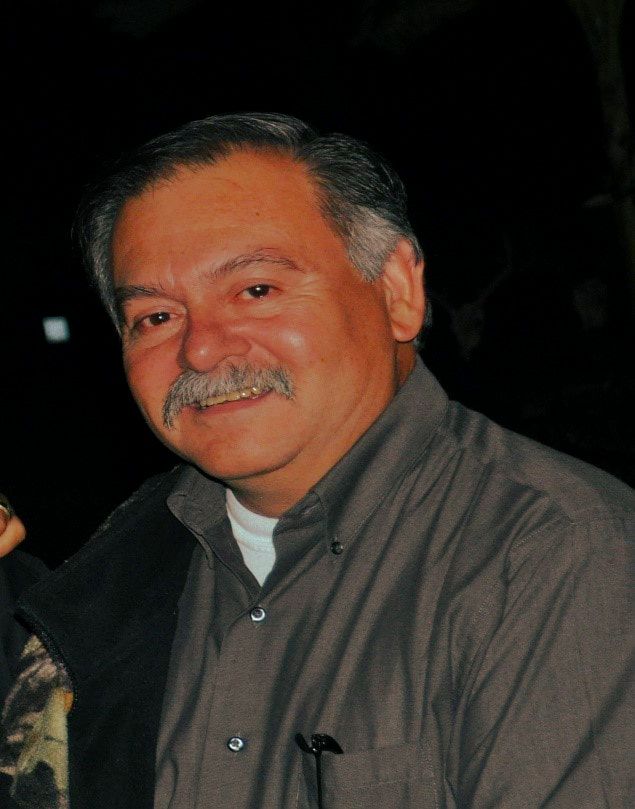
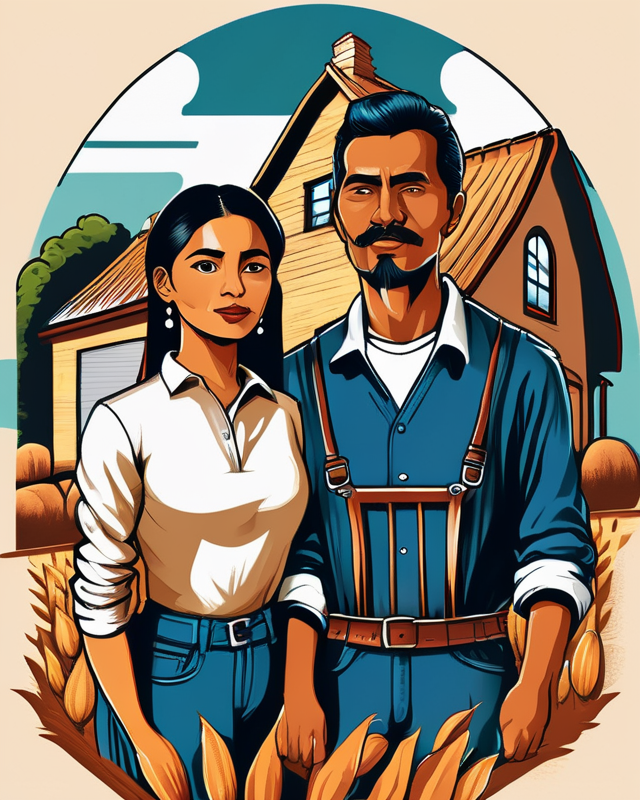



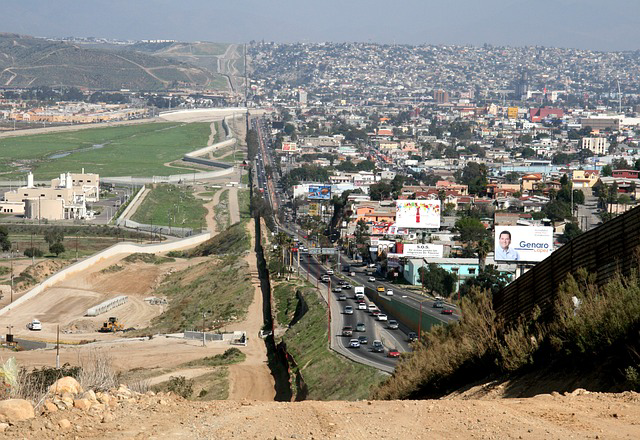
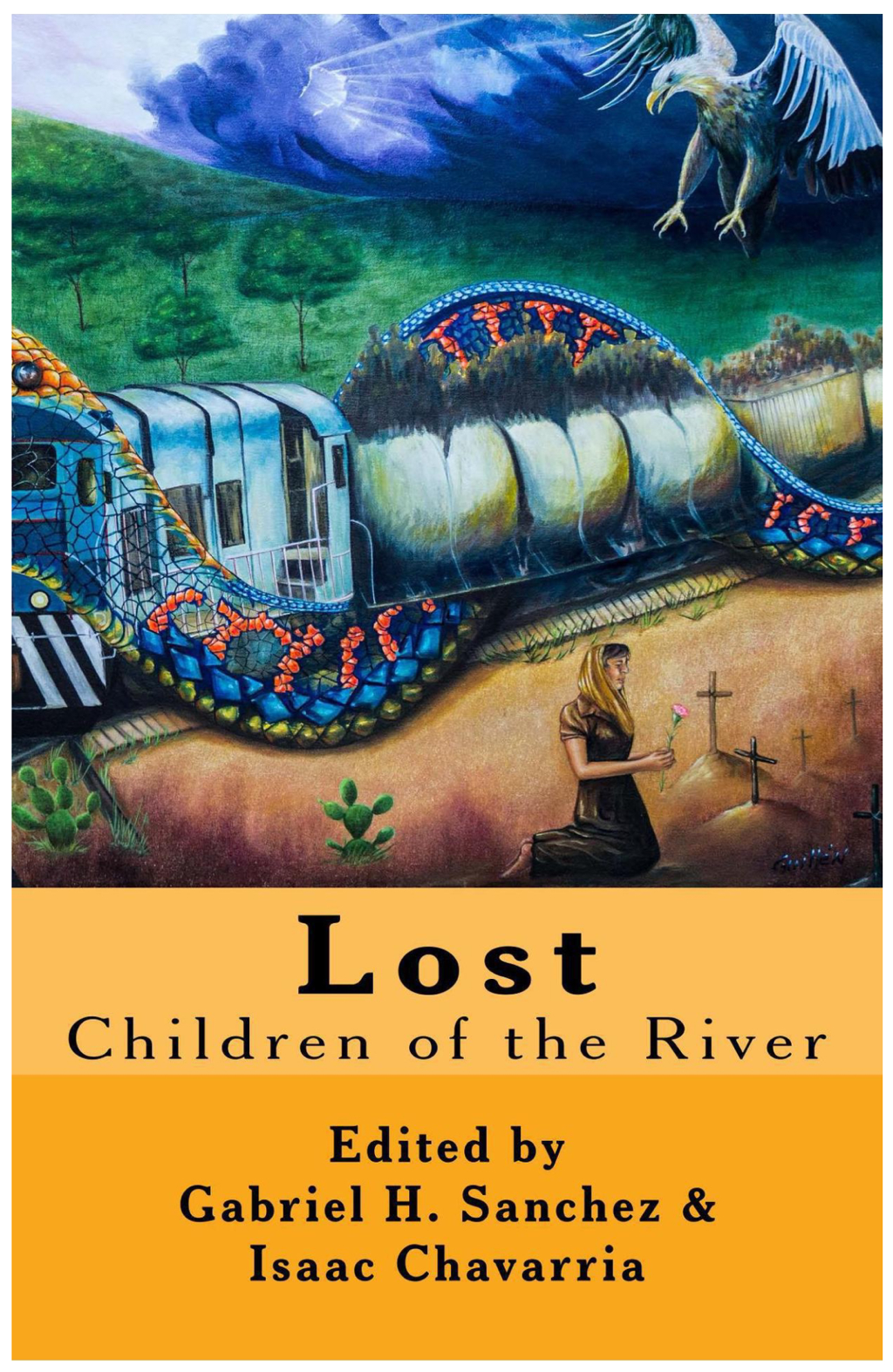
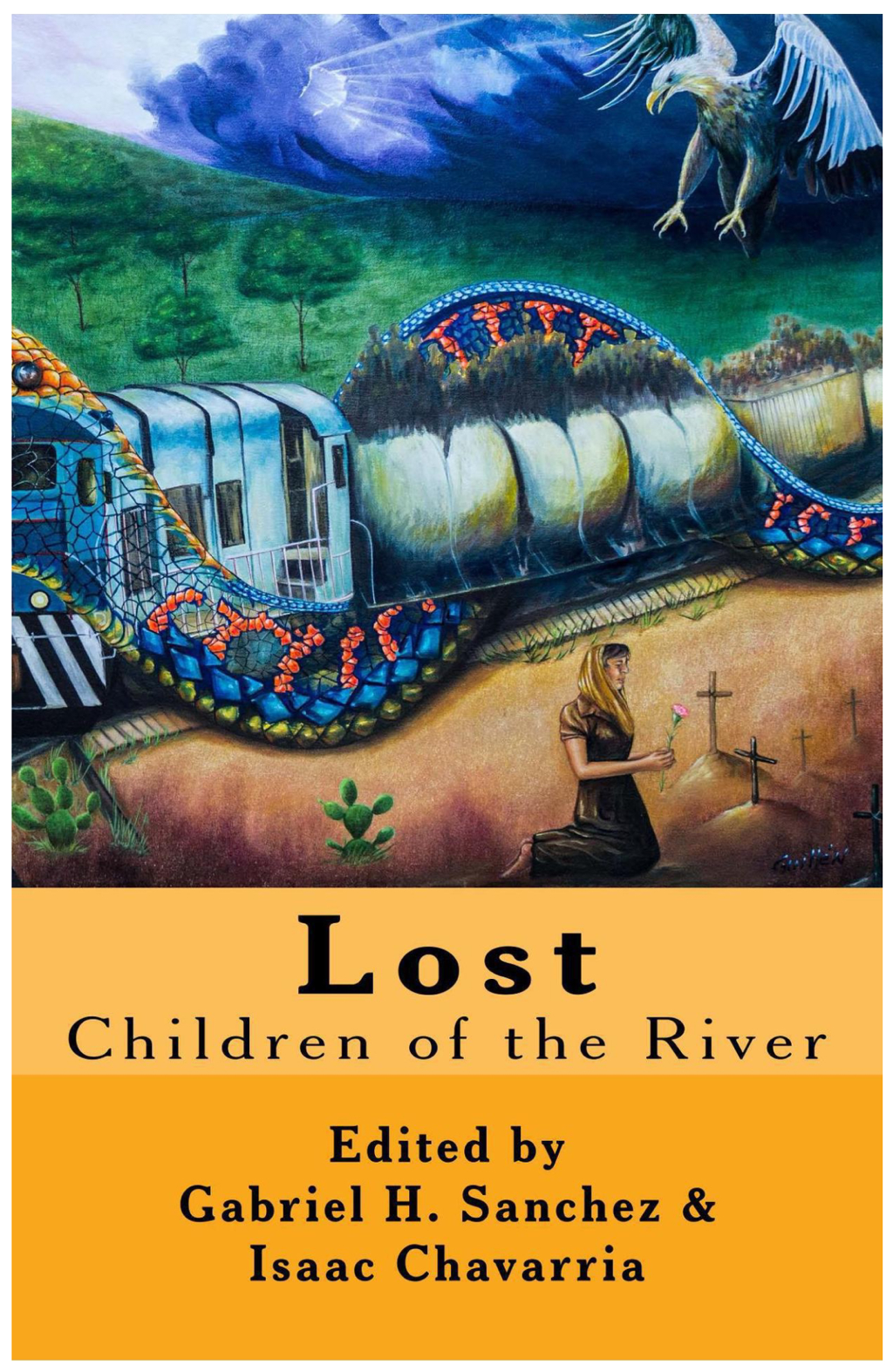


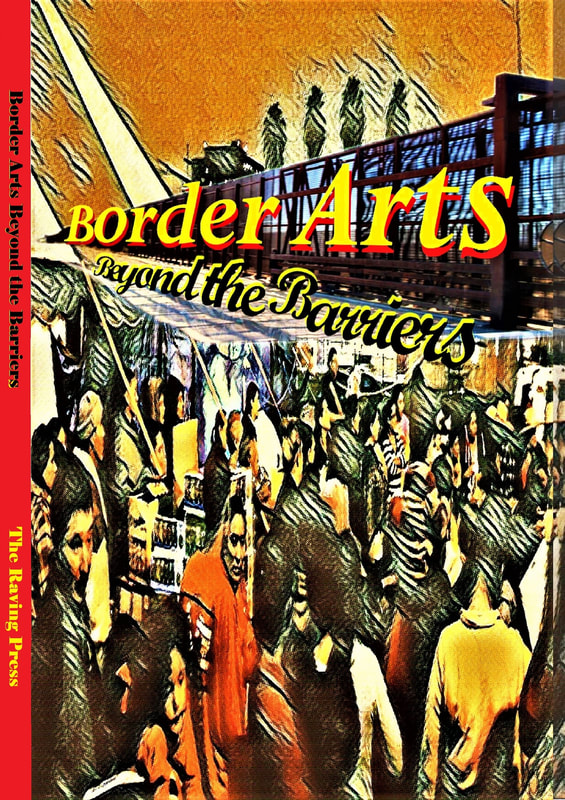

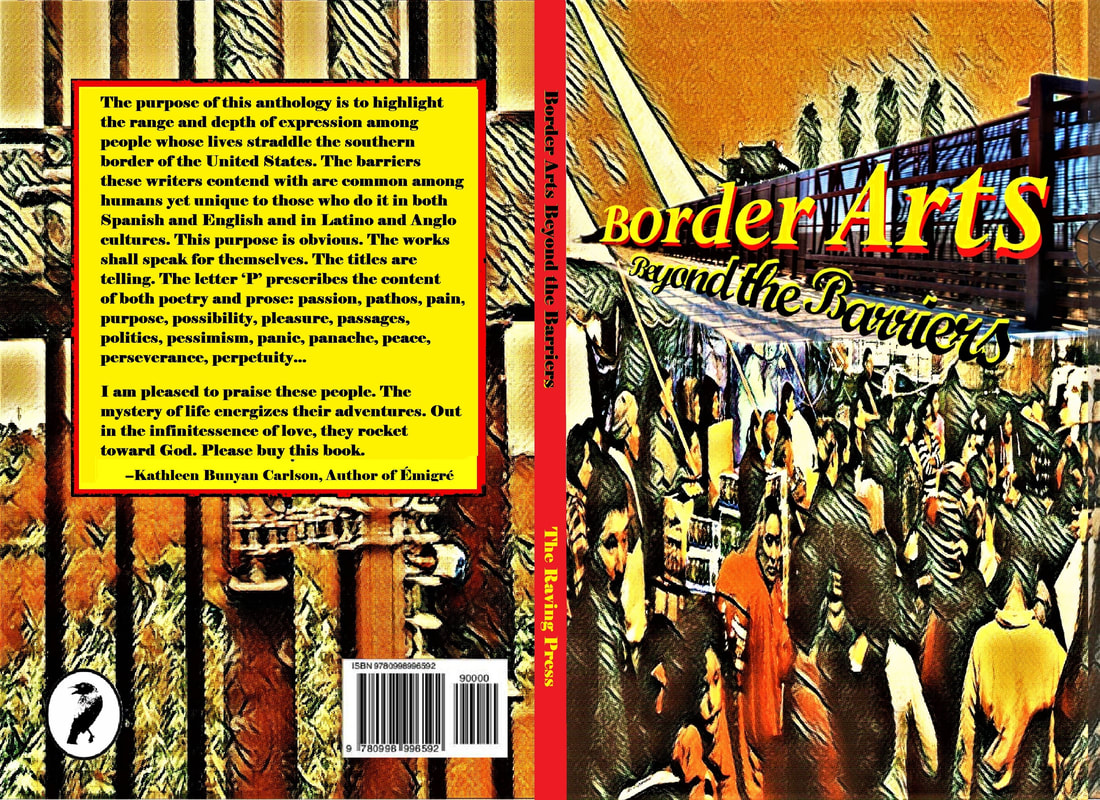



 RSS Feed
RSS Feed
